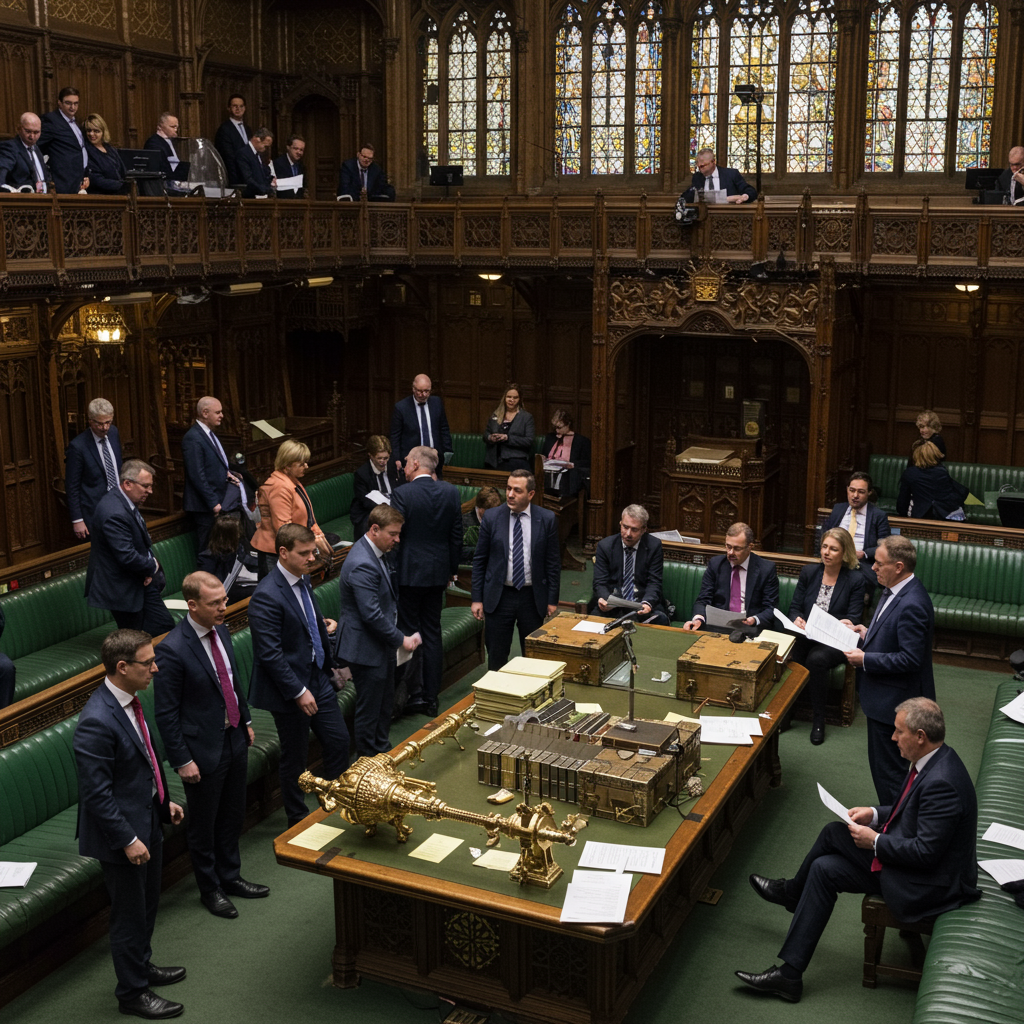The UK Parliament has taken a significant step towards potentially legalising assisted dying for terminally ill adults in England and Wales. In a historic and emotionally charged vote, the House of Commons narrowly approved the “Terminally Ill Adults (End of Life)” Bill, sending it for further scrutiny in the House of Lords.
This landmark moment follows decades of debate and marks a potential shift in social policy regarding end-of-life choices. While the principle of allowing terminally ill patients the right to end their lives has been approved, crucial details about its practical implementation are still being finalised.
What the Bill Proposes
The proposed legislation would grant mentally competent adults in England and Wales, who have received a diagnosis of six months or less to live, the right to choose to end their lives with medical assistance.
Key aspects of the bill include:
Eligibility: Must be a mentally competent adult resident in England or Wales with a confirmed terminal illness and a prognosis of six months or less.
Process: Patients would need approval from multiple medical professionals and a panel, which includes a doctor, a psychiatrist, a senior legal figure, and a social worker. Crucially, the patient would be required to self-administer the prescribed fatal medication.
Distinction from Euthanasia: The bill explicitly differentiates the process from euthanasia, where a doctor or other person directly administers a lethal substance.
Geographic Scope: The bill applies only to England and Wales. Northern Ireland currently has no plans for similar legislation, while Scotland is progressing its own assisted dying bill.
Current Law: Under existing law, assisting someone to end their life is a criminal offence carrying a potential prison sentence of up to 14 years. This bill seeks to create a legal framework for medical assistance under specific, tightly controlled conditions.
Safeguards and Amendments
Supporters of the bill emphasise the safeguards designed to protect vulnerable individuals. The legislation has undergone amendments since its initial introduction.
Notable changes and provisions include:
Expert Panel: The requirement for a High Court judge to sign off on each case has been removed. This role is now assigned to the multi-disciplinary panel of experts.
Staff Opt-Out: Explicit protection is included for any medical or social care staff who do not wish to participate in the process, ensuring they cannot be compelled or discriminated against.
Vulnerable Person Support: Provisions for independent advocates to support individuals with learning disabilities, autism, or mental health conditions have been added, along with the creation of a disability advisory board.
Anorexia Clarification: An amendment was accepted to clarify that eligibility cannot be based solely on voluntarily stopping eating and drinking, addressing a specific concern raised by opponents.
The Parliamentary Vote and the Road Ahead
The bill cleared its biggest hurdle in the House of Commons on Friday, June 20, 2025, passing its third reading by a narrow margin of 314 votes to 291. This majority of 23 was significantly smaller than the 55-vote majority the bill secured in principle in November 2024, indicating persistent divisions and potential shifts in opinion among MPs.
The bill now moves to the House of Lords for extensive scrutiny. While the Lords typically respect the will of the elected Commons, particularly on private member’s bills not in a government manifesto, significant debate and amendments are expected. Opponents in the Lords have already signalled their intent to challenge the legislation vigorously.
Arguments For and Against Assisted Dying
The debate surrounding the bill in Parliament was deeply emotional, marked by personal testimonies and strongly held convictions on both sides.
Supporters argue:
It offers dignity, compassion, and choice for terminally ill individuals suffering unbearably at the end of life.
It provides autonomy over one’s body and death, akin to other rights such as the right to choose abortion (as argued by bill sponsor MP Kim Leadbeater).
It addresses the current inequality where wealthy individuals can travel abroad (often to places like Switzerland at considerable cost, estimated around £12,000) to access legal assisted dying, while others assisting loved ones face criminal prosecution in the UK.
Public opinion polls consistently show majority support for legalising assisted dying in the UK.
Opponents voice concerns:
The primary worry is the potential for vulnerable people, including disabled individuals, to feel pressured or coerced into ending their lives, whether by family, the care system, or feeling like a burden due to inadequate social care or palliative care options.
They argue the safeguards, particularly the removal of the judge sign-off, are insufficient and the process has been rushed through Parliament without enough time to consider complex amendments.
Concerns exist about the impact on the National Health Service (NHS), including potential financial pressures, fears it could detract from funding for palliative care, and the risk of undermining the crucial trust between doctors and patients.
Opponents, such as disabled peer Tanni Grey-Thompson, contend that with truly accessible, high-quality palliative care, no one needs to suffer a “terrible death.”
Implementation Challenges
Even if the bill successfully navigates the House of Lords and receives Royal Assent, there are significant practical and logistical challenges that need to be resolved before assisted dying services could become operational.
Unresolved questions include:
Whether the service will be integrated into the NHS, operate as a separate unit (potentially run by third parties), or use a hybrid model.
Required training and qualifications for medical and other staff involved (noting doctors will not be compelled to participate).
The type of lethal substance to be used.
Specifics around patient identification, record-keeping, and codes of practice.
These logistical hurdles could cause delays, meaning that while the bill mandates implementation within four years of becoming law (no later than 2029), individuals with very short life expectancies might not be able to access the service in time. The bill proposes the service would be free of charge if publicly funded.
A Growing Global Trend
The UK’s debate occurs within a wider international context. Assisted dying (sometimes known as medical assistance in dying or physician-assisted dying) is legal in several countries and jurisdictions worldwide, accessible to an estimated 300 million people.
Examples include:
Europe: Switzerland (legalised in 1942), the Netherlands, Belgium, Luxembourg, Spain, Portugal, and Austria.
British Isles: The Isle of Man became the first in the British Isles to pass a bill in March 2025.
Americas: 10 US states and Washington D.C., all Australian states (since 2022), Colombia (euthanasia, 2014), Ecuador (decriminalised, 2024), and Canada (MAID, expanded criteria since 2021 to non-terminal illness, now debating mental illness).
- Others: France is currently considering similar legislation.
- www.aljazeera.com
- www.theguardian.com
- www.gbnews.com
- www.bbc.com
- news.sky.com
The UK Parliament’s approval marks a significant step in this global discussion, but the path to implementation remains subject to further political and logistical challenges.



